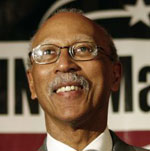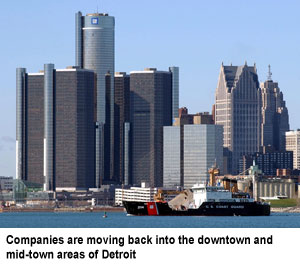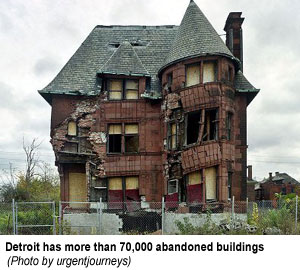
Dave Bing, Mayor of Detroit, Michigan, USA

FRONT PAGE
About us
 

MAYORS OF THE MONTH
In 2015
Mayor of Seoul, South Korea (04/2015)
Mayor of Rotterdam, Netherlands (03/2015)
Mayor of Houston, USA, (02/2015)
Mayor of Pristina, Kosovo (01/2015)
In 2014
Mayor of Warsaw, Poland, (12/2014)
Governor of Tokyo, Japan, (11/2014)
Mayor of Wellington, New Zealand (10/2014)
Mayor of Sucre, Miranda, Venezuela (09/2014)
Mayor of Vienna, Austria (08/2014)
Mayor of Lampedusa (07/2014)
Mayor of Ghent, Belgium (06/2014)
Mayor of Montería, Colombia (05/2014)
Mayor of Liverpool, UK (04/2014)
Mayor of Pittsford Village, NY, USA (03/2014)
Mayor of Surabaya, Indonesia (02/2014)
Mayor of Santiago, Chile (01/2014)
In 2013
Mayor of Soda, India (12/2013)
Mayor of Zaragoza, Spain (11/2013)
Mayor of Marseille, France (10/2013)
Mayor of Schwäbisch Gmünd, Germany (09/2013)
Mayor of Detroit, USA (08/2013)
Mayor of Moore, USA (07/2013)
Mayor of Mexico City, Mexico (06/2013)
Mayor of Cape Town, South Africa (05/2013)
Mayor of Lima, Peru (04/2013)
Mayor of Salerno, Italy (03/2013)
Governor of Jakarta, Inbdonesia (02/2013)
Mayor of Rio de Janeiro, Brazil (01/2013)
In 2012
Mayor of Izmir, Turkey (12/2012)
Mayor of San Antonio, USA (11/2012)
Mayor of Thessaloniki, Greece (10/2012)
Mayor of London, UK (09/2012)
Mayor of New York, USA (08/2012)
Mayor of Bilbao, Spain (07/2012)
Mayor of Bogotá, Columbia (06/2012)
Mayor of Perth, Australia (05/2012)
Mayor of Mazatlán, Mexico (04/2012)
Mayor of Tel Aviv, Israel (03/2012)
Mayor of Surrey, Canada (02/2012)
Mayor of Osaka, Japan (01/2012)
In 2011
Mayor of Ljubljana, Slovenia (12/2011)
COUNTRY SECTIONS
Argentine Mayors
Belgian Mayors
Brazilian Mayors
British Mayors
Canadian Mayors
Chilean Mayors
Colombian Mayors
Czech Mayors
French Mayors
German Mayors
Italian Mayors
Japanese Mayors
Mexican Mayors
Spanish Mayors
US Mayors
Local government in the US

Worldwide | Elections | North America | Latin America | Europe | Asia | Africa |


 




 













|
|
Mayor of the Month for August 2013
Dave Bing
Mayor of Detroit, Michigan, USA
By City Mayors staff writers
1 August 2013: This year more has been said and written about Detroit’s economy than during any year since 1960. Perhaps if the US had paid as much attention to the long decline of one of the continent’s most iconic cities as it did to its recent financial woes, the home of America’s motor industry would not now be ruled by a state-appointed commissar rather than its elected mayor. Since former US President Gerald Ford refused federal help to troubled New York City in the mid-1970s - a failure, which the Daily News famously headlined as ‘Ford to City: Drop dead’ - urban policy has not been a priority in Washington or the nation’s state capitals.
Update 5 November 2013: After Dave Bing decided not to stand for a second term, Mike Duggan was elected as new Mayor of Detroit
Detroit is not America’s first municipal failure and wont be its last. In the past two years, the cities of Stockton and San Bernardino in California have declared bankruptcy, as have Central Falls, Rhode Island, as well as Jefferson County, Alabama. In a recent interview, Detroit’s mayor Dave Bing said he knew of more than a hundred major urban cities that have the same problems as his city. “We may be the largest municipal bankruptcy but we absolutely will not be the last,” he warned. He added that with the nation and the world watching, Detroit will have to set a benchmark on how to fix American cities.
 The mayor is convinced that Detroit will flourish again, pointing out that the city’s downtown and midtown areas were already booming again, but warned that any recovery wont happen overnight. Detroit’s biggest problems are in its neighbourhoods where most people live. They suffered an appalling decline in services and amenities. Street lighting is not working, parks have been closed and police and medical emergency cover is virtually non-existent. Mayor Bing blamed the lack of resources for the horrendous state of affairs but also admitted City Hall had failed Detroiters over the years. The mayor is convinced that Detroit will flourish again, pointing out that the city’s downtown and midtown areas were already booming again, but warned that any recovery wont happen overnight. Detroit’s biggest problems are in its neighbourhoods where most people live. They suffered an appalling decline in services and amenities. Street lighting is not working, parks have been closed and police and medical emergency cover is virtually non-existent. Mayor Bing blamed the lack of resources for the horrendous state of affairs but also admitted City Hall had failed Detroiters over the years.
Dave Bing’s entry into Detroit city politics, albeit as a successful businessman and role model, followed another turbulent era in the city’s history. Not only has Detroit had to grapple with depleted finances amid the post-2008 recession and its build up, as well as the flight from many of its unsustainable neighbourhoods, but also the largest corruption scandal to hit any major American city for years. The city’s swaggering former mayor Kwame Kilpatrick (2002-2008) made history as its youngest at just 31 and was given the honour of addressing the 2000 and 2004 Democratic conventions, suggesting a national political career following his stint in city politics.
However, Kilpatrick agreed to step down from office and pleaded guilty to two felony misconduct charges that stem from a sex scandal. Kilpatrick admitted to two counts of obstruction of justice after his lawyers struck a deal with prosecutors. As part of the plea agreement, Kilpatrick served 100 days in jail and had to pay $1m in restitution. He also was barred from holding public office for five years. In December 2010, Kilpatrick was indicted on new corruption charges, in what a federal prosecutor called a "pattern of extortion, bribery and fraud" by some of the city's most prominent officials. In March 2013, Kilpatrick was found guilty of racketeering, extortion, mail fraud and tax evasion while Mayor of Detroit. He now faces a prison sentence of up to 20 years.
Following Kilpatrick’s departure, the city council president Kenneth Cockrel was sworn in as acting mayor, running the city from September 2008 to May 2009. Cockrel was defeated by Dave Bing in the May special election for the post. Bing won the November 2009 general elections, against challenger Tom Barrow. Since being elected, Bing struggled to balance the city’s budget and had to introduce drastic plans to downsize the city to its urban core, ostensibly abandoning unsustainable deserted neighbourhoods by cutting off municipal services.
 In 2010, Mayor Bing first proposed to ‘rightsize’ Detroit. He pointed out that Detroit covered an area as large as Manhattan, San Francisco and Boston combined but housed less than half the population of Manhattan. In a frank admission, he said all efforts to re-populate abandoned neighbourhoods had failed and it was now time to shore up viable areas. Many Detroiters thought the mayor’s ideas were the only ones that made any sense but felt he was very much a ‘one-man-band’ in City Hall. He was faced not with much opposition but with incompetence, a Detroit reporter wrote. In 2010, Mayor Bing first proposed to ‘rightsize’ Detroit. He pointed out that Detroit covered an area as large as Manhattan, San Francisco and Boston combined but housed less than half the population of Manhattan. In a frank admission, he said all efforts to re-populate abandoned neighbourhoods had failed and it was now time to shore up viable areas. Many Detroiters thought the mayor’s ideas were the only ones that made any sense but felt he was very much a ‘one-man-band’ in City Hall. He was faced not with much opposition but with incompetence, a Detroit reporter wrote.
When in December of 2012 Michigan State Governor Rick Snyder appointed a team to examine Detroit’s finances, Dave Bing argued strongly against the takeover of the city by a financial emergency manager. He pointed out that since Detroit and the state struck a recovery deal in April 2012, the city had made significant progress in some of the 25 reform initiatives, which were identified as chronic problems. The mayor also blamed Michigan for some of Detroit’s financial woes, saying that since 2002 the city had not received its agreed share of revenues from the state.
In March 2013, unconvinced by the mayor’s arguments, Michigan Governor Snyder appointed Kevyn Orr, a Washington-based bankruptcy lawyer, as Detroit’s emergency manager and invested him with considerable authority, including powers to revise or reject city budgets, consolidate departments, reduce or eliminate the salaries of elected officials, sell assets, lay off workers and renegotiate labour contracts. The emergency manager was also given the authority to decide whether ultimately to file for bankruptcy. On 18 July 2013, Orr used his authority and filed for bankruptcy, making it the largest city in US history to seek Chapter 9 protection. He said that the move had become inevitable, as long-term debt had soared to $18 billion and with the annual budget deficit rising to $300 million.
Detroit is one of six cities in Michigan placed under state oversight. Pontiac, Flint, Ecorse, Allen Park and Benton Harbor already have appointed managers, as do public school districts in Detroit, Highland Park and Muskegon Heights.
The take-over of Detroit by an emergency manager has made Mayor Bing’s job largely ceremonial. He has in effect been neutered, deprived of any real powers. Nevertheless the mayor has carried out his duties with great dignity and despite his earlier fight for continued independence has co-operated fully with Kevyn Orr. Some of the mayor’s critics have even accused him of not opposing the emergency manager strongly enough and tacitly supporting the bankruptcy decision.
Since announcing that he would not seek re-election in November 2013, Dave Bing has tried to reassure Detroiters that they would be at the heart of any decisions that would be made. “One of the things that I want to say to our citizens is that as tough as this is, I really didn’t want to go in this direction. But now that we are here, we have to make the best of it. I think Kevyn and the team that he brought together has a lot of history of succeeding. This is very difficult for all of us, but if it’s going to make services better off, then this is a new start for us.”
The mayor also strongly rejected comments made in a Washington Post article that Detroit, which over the past 50 years has gone from 80 per cent white to 80 per cent black, was surrounded by a ring of often hostile white suburbs in a largely conservative Michigan that had little time for a poor destitute, black and Democrat city. The article’s author added that many Detroiters regarded the appointment of Kevyn Orr as a hostile racist takeover of the city’s elected black leadership. But the mayor replied that the issue was financial, not racial. “The issue is not black or white but green.” (US bank notes are predominantly coloured green)
Mayor Bing believes that the polarisation, which has been going on between Detroit and its suburbs for more than 60 years, has to change. “If Detroit fails all surrounding areas will also suffer. The suburbs and the city need to work together to make the whole region livable for all of us.”
Detroit’s path to bankruptcy did not occur overnight. The city lacks the economic diversity of cities like Chicago or New York. It has been relying on the automotive industry and its suppliers for too long and has failed to attract other sectors. As the car manufacturers went away, the city began a very long decline that occurred over 50 years. At Detroit’s peak in the early 1950s, the population was at 1.8 million residents. By 2012, it was down to around 700,000. In 1910, Detroit was the ninth-largest US city, in 1960 it was fifth after New York, Chicago, Los Angeles and Philadelphia but by 2012 it had fallen to 18th place.
|
|

|































 The mayor is convinced that Detroit will flourish again, pointing out that the city’s downtown and midtown areas were already booming again, but warned that any recovery wont happen overnight. Detroit’s biggest problems are in its neighbourhoods where most people live. They suffered an appalling decline in services and amenities. Street lighting is not working, parks have been closed and police and medical emergency cover is virtually non-existent. Mayor Bing blamed the lack of resources for the horrendous state of affairs but also admitted City Hall had failed Detroiters over the years.
The mayor is convinced that Detroit will flourish again, pointing out that the city’s downtown and midtown areas were already booming again, but warned that any recovery wont happen overnight. Detroit’s biggest problems are in its neighbourhoods where most people live. They suffered an appalling decline in services and amenities. Street lighting is not working, parks have been closed and police and medical emergency cover is virtually non-existent. Mayor Bing blamed the lack of resources for the horrendous state of affairs but also admitted City Hall had failed Detroiters over the years. In 2010, Mayor Bing first proposed to ‘rightsize’ Detroit. He pointed out that Detroit covered an area as large as Manhattan, San Francisco and Boston combined but housed less than half the population of Manhattan. In a frank admission, he said all efforts to re-populate abandoned neighbourhoods had failed and it was now time to shore up viable areas. Many Detroiters thought the mayor’s ideas were the only ones that made any sense but felt he was very much a ‘one-man-band’ in City Hall. He was faced not with much opposition but with incompetence, a Detroit reporter wrote.
In 2010, Mayor Bing first proposed to ‘rightsize’ Detroit. He pointed out that Detroit covered an area as large as Manhattan, San Francisco and Boston combined but housed less than half the population of Manhattan. In a frank admission, he said all efforts to re-populate abandoned neighbourhoods had failed and it was now time to shore up viable areas. Many Detroiters thought the mayor’s ideas were the only ones that made any sense but felt he was very much a ‘one-man-band’ in City Hall. He was faced not with much opposition but with incompetence, a Detroit reporter wrote.